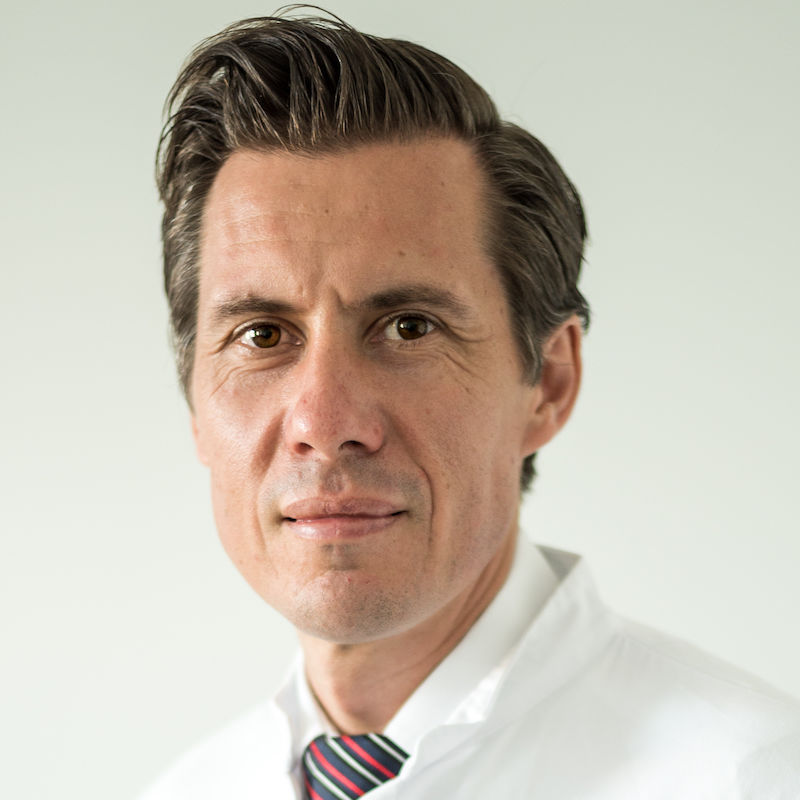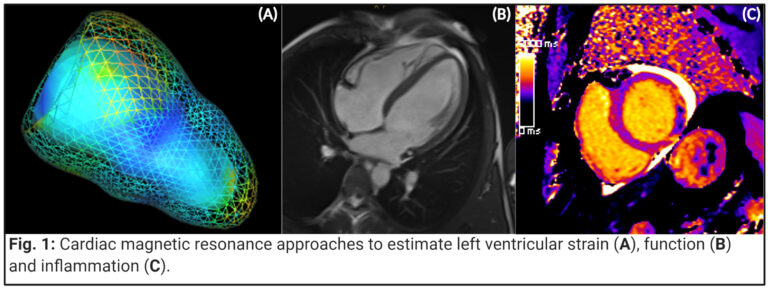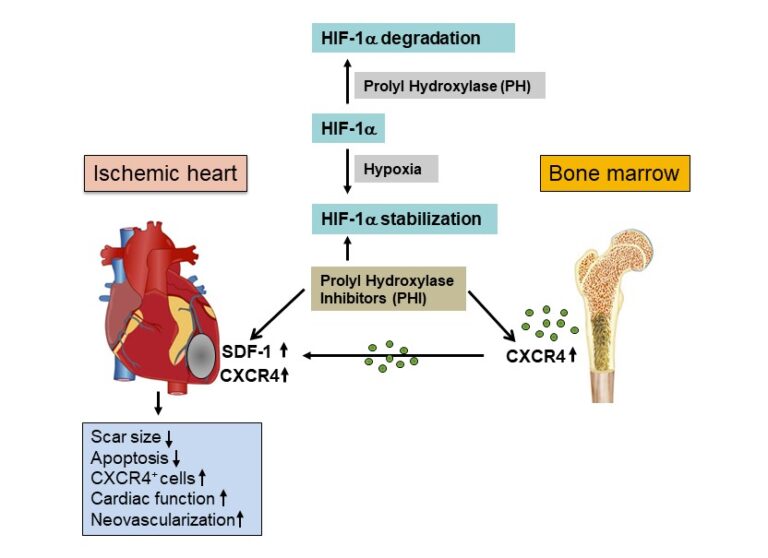
Anichstraße. 35
A-6020 Innsbruck
Fax: +43 (0) 50 504-25622
Email: Axel.Bauer@i-med.ac.at
Website: https://inneremed3.tirol-kliniken.at/
Research year
Research Branch (ÖSTAT Classification)
301109 302006 302030 302032 302071
Keywords
angiology, atherosclerosis, biomarker, biosignals, Cardiology, cardiovascular imaging, cardiovascular repair, digital medicinemyocardial infarction, and interventional cardiology
Research Focus
The Dept. of Cardiology and Angiology has a research focus on several key areas in the field of cardiovascular medicine, including acute myocardial infarction, digital medicine as well as advanced cardiovascular imaging. We aim to enhance our understanding of these particular areas through innovative research approaches and academic randomised trials. Through these trials, we aim to generate high-quality evidence that can inform future clinical practice.
General Facts
Prof. Dr. A. Bauer is head of the Department of Cardiology & Angiology at Medical University of Innsbruck since July 2019. He is an interventional cardiologist and a highly esteemed scientist. He enriched the department with his experience in conducting large randomised trials.
At our department, research is structured in several groups with distinct research focus, ranging from translational science to clinical research. The working group of Prof. Bauer mainly works on the characterisation of the different facets of the cardiac autonomic nervous system by means of novel non-invasively derived biomarkers, including ECG signals, blood pressure recordings and respiratory signals. The aim is to improve the prognosis of patients through individualised management based on this approach. Another main research group headed by Prof. Dr. B. Metzler focuses mainly on advanced imaging modalities in patients with acute myocardial infarction and valvular heart disease. Furthermore, the research group performs randomised controlled studies and is involved in large multicentre trials. Clinical trials in interventional cardiology are also supervised by Doz. C Brenner. Translational research, with the primary focus on vascular biology and angiogenesis, is mainly carried out by Prof. Dr. R. Kirchmair and Dr. M. Theurl. Translational research with a primary focus on cardiovascular repair is conducted mainly by Prof. Dr. M. Zaruba. The experimental electrophysiology team led by Doz. M. Stühlinger and Doz. W. Dichtl focuses on clinically oriented research.
Research
Biosignal Analysis
Leader: Prof. A. Bauer, MD
Members: M. Schreinlechner, MD; T. Dolejsi, MD, PhD; Dipl.-Ing. M. Toifl; F. Theurl, MD; F. Hofer, MD
The working group on biosignal-analysis investigates the cardiac autonomic nervous system (CAS), which provides important information on numerous cardiovascular diseases. To obtain an insight into the CAS, biological signals influenced by the CAS are analysed; signals such as ECG, blood pressure, respiratory activity or oxygen saturation are obtained non-invasively from the body surface, using conventional or mobile devices. Recent projects include the SMART-MI and eBRAVE-AF study, which have been published in leading international journals.
Cardiac Magnetic Resonance Imaging
Leaders: Prof. B. Metzler, MD; PD. SJ. Reinstadler, MD, PhD
Members: Assoc.-Prof. A. Mayr, MD; PD. M. Reindl, MD, PhD; C. Tiller, MD, PhD; M. Holzknecht, MD; I. Lechner, MD; F. Troger, MD; P. Fink, MD; F. Oberhollenzer, MD
The Cardiac Magnetic Resonance Imaging (CMR) working group focuses on advanced CMR imaging in patients with ST-elevation myocardial infarction (STEMI) to obtain deeper insights into the pathophysiology of myocardial tissue injury and infarct healing. CMR-guided trans-catheter aortic valve implantation planning is another important focus of the research group. In addition to participation in randomised, multinational clinical trials, the working group has initiated own academic, randomised, multicentre studies (TAVR-CMR; NCT03831087, CRP-STEMI Trial; NCT04939805).
Cardiovascular Repair and Aging
Leaders: Prof. G. Pölzl, MD; Assoc. Prof. MM. Zaruba, MD
Members: M. Messner, MD, PhD; T. Schütz, MD; M. Ungericht, MD
Our research aims to develop novel treatments for ischemic and non-ischemic cardiomyopathies and better understand their pathology. We study the interaction of cytokines like SDF-1 on cell migration and myocardial repair using genetic mouse models.
Clinical Trials in Interventional Cardiology
Leader: PD. C. Brenner, MD
Interventional cardiology focuses on minimally invasive treatment of acute myocardial infarction with high prognostic relevance. We have established a structured patient database to optimise diagnostic and therapeutic approaches and conduct diverse clinical studies.
Endothelial Cell Biology
Leader: Prof. R. Kirchmair, MD
Members: M Theurl, MD, PhD; M Noflatscher, MD, PhD; D. Lener, B.Sc.
Our research group examines vascular cell biology. We have shown neuropeptide secretoneurin induces neovascularisation in cardiovascular and diabetic mouse models, potentially offering therapeutic benefits for diabetics who frequently do not qualify for interventional or surgical revascularisation.
Experimental Electrophysiology
Leader: PD. W. Dichtl, MD and PD. M. Stühlinger,
Members: MD; PD. W. Schgör, MD; PD. F. Hintringer, MD; A. Adukauskaite, PhD; P Spitaler, MD
The team focuses on clinical research into atrial fibrillation, device therapy in heart failure and rare diseases (WPW syndrome, pacing-induced cardiomyopathy, Takotsubo syndrome).
Pictures
Selected Publications
D Rizas K, Freyer L, … Bauer A.: Smartphone-based screening for atrial fibrillation: a pragmatic randomized clinical trial. Nat Med. 2022
Lechner I, Reindl M, Tiller C, Holzknecht M, Troger F, Fink P, Mayr A, Klug G, Bauer A, Metzler B, Reinstadler SJ (2022). Impact of COVID-19 pandemic restrictions on ST-segment elevation myocardial infarction: a cardiac MRI study. Eur Heart J. 2022
Bauer A, Sappler N, von Stülpnagel L, et al.: Telemedical cardiac risk assessment by implantable cardiac monitors in patients after myocardial infarction with autonomic dysfunction (SMART-MI-DZHK9): a prospective investigator-initiated, randomised, multicentre, open-label, diagnostic trial. Lancet Digit Health. 2022
Bauer A, Schreinlechner M, Sappler N, et al.: Discontinuation versus continuation of renin-angiotensin-system inhibitors in COVID-19 (ACEI-COVID): a prospective, parallel group, randomised, controlled, open-label trial. Lancet Respir Med. 2021
Tiller C, Reindl M, Holzknecht M, Lechner I, Schwaiger JP, Brenner C, Mayr A, Klug G, Bauer A, Metzler B, Reinstadler SJ (2022). Association of plasma interleukin-6 with infarct size, reperfusion injury and adverse remodeling after ST-elevation myocardial infarction. Eur Heart J Acute Cardiovasc Care. 2022
Mayr A, Klug G, Reindl M, Lechner I, Tiller C, Holzknecht M, Pamminger M, Troger F, Schocke M, Bauer A, Reinstadler SJ, Metzler B (2022). Evolution of Myocardial Tissue Injury and Persistence of Iron and Edema Within the Infarct Core: A CMR Study Over a Decade After ST-Elevation Myocardial Infarction (2022). JACC Cardiovasc Imaging. 2022
Reindl M, Lechner I, Tiller C, Holzknecht M, Rangger A, Mayr A, Theurl M, Klug G, Brenner C, Bauer A, Metzler B, Reinstadler SJ (2021): Glycaemic Status and Reperfusion Injury in Patients with ST-segment Elevation Myocardial Infarction. JACC Cardiovasc Imaging. 2021
Dolejsi T, Delgobo M, Schuetz T, Tortola L, Heinze KG, Hofmann U, Frantz S, Bauer A, Ruschitzka F, Penninger JM, Campos Ramos G, Haubner BJ. Adult T-cells impair neonatal cardiac regeneration. Eur Heart J. 2022
Reindl M, Stiermaier T, Lechner I, Tiller C, Holzknecht M, Mayr A, Schwaiger JP, Brenner C, Klug G, Bauer A, Thiele H, Feistritzer HJ, Metzler B, Eitel I, Reinstadler SJ (2021). Cardiac magnetic resonance imaging improves prognostic stratification of patients with ST-elevation myocardial infarction and preserved ejection fraction. Eur Heart J Open. 2021
Selection of Funding
Prof. Dr. Axel Bauer: Austrian Science Fund (FWF), KLI-900; € 394,922
PD. Dr. Sebastian Reinstadler, PhD: Excellence Scholarship oft he Austrian Society of Cardiology, € 100,000
Dr. Christina Tiller, PhD: TWF-Grant “Tiroler Wissenschaftsförderung; € 34,236
PD. Dr. Sebastian Reinstadler, PhD: “Gesellschaft zur Förderung der Herz-Kreislauf-Forschung”; € 24,680
PD. Dr. Martin Reindl, PhD: Gesellschaft zur Förderung der Herz-Kreislauf-Forschung”; € 24,680
Dr. Magdalena Holzknecht: Research grant from the Austrian Society of Cardiology; € 20,000
Dr. Ivan Lechner: Research Grant of the Austrian Heart Fund; € 13,260
Dr. Christina Tiller, PhD: Presidential Scholarship of the “Austrian Society of Cardiology” € 50,000
Dr. Ivan Lechner: Research grant from the Austrian Society of Cardiology; € 20,000
Collaborations
Prof. Dr. H. Thiele, University of Leipzig, Germany
Prof. Dr. I. Eitel, University of Lübeck, Germany
Prof. Colin Berry, University of Glasgow, United Kingdom
Prof. Robin Nijveldt, Radboud University Medical Center, Nijmegen, Netherlands
Prof. Dr. G. Schmidt, Technische Universität München, München, Germany
Prof. Dr. M. Zabel, Universitätsmedizin Göttingen, Göttingen , Germany
Prof. Marek Malik, Cardiac and Vascular Sciences, St. George’s, University of London, London, United Kingdom
Prof. Wojciech Zareba, Heart Research Follow-up Program, University of Rochester, Rochester , USA
Prof. Dr. H. Huikuri, Tampere University Hospital, Tampere, Finland
German Center for Cardiovascular Research (DZHK), Germany

